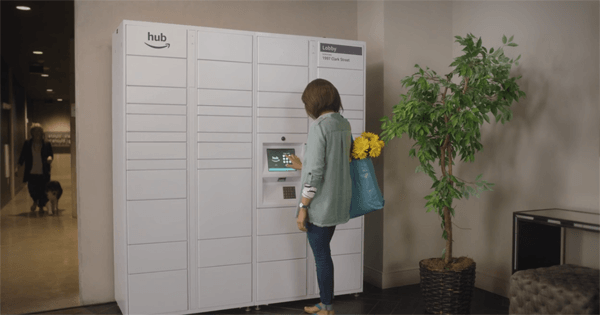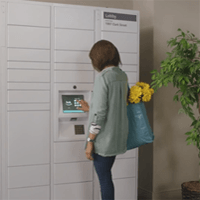Assessing the Digital Locker Space: The Steps to Selecting the Right System

Amazon recently announced a deal with Greystar and AvalonBay that will put its Hub By Amazon lockers in apartment buildings with more than 850,000 units.
 This past holiday season, top carriers (USPS, UPS and FedEx) delivered billions of packages before the New Year. With the influx in shipments from ecommerce sites and the increase in "porch pirate" activity, the multifamily housing industry (e.g., apartment buildings) realizes the critical importance for a new system for managing packages; however, choosing the right system should not be taken lightly. Here are a few items retailers, consumers and housing managers should consider considering the experience for each is at stake if something goes array:
This past holiday season, top carriers (USPS, UPS and FedEx) delivered billions of packages before the New Year. With the influx in shipments from ecommerce sites and the increase in "porch pirate" activity, the multifamily housing industry (e.g., apartment buildings) realizes the critical importance for a new system for managing packages; however, choosing the right system should not be taken lightly. Here are a few items retailers, consumers and housing managers should consider considering the experience for each is at stake if something goes array:
1. Ownership: Currently, the owner/manager of the apartments purchase the locker as an asset for their property and offer it as an amenity to the resident. Using the Hub by Amazon doesn't seem to be considered an asset of purchase, but more of a leased item that Amazon will own and permit use of pursuant to their terms and conditions for a limited period of time. For that reason, it is critical that housing managers and consumers assess and understand the impacts on the language as it relates to the package management fees that properties have in place.
2. Privacy: Currently, the property managers own all of the resident data. That resident is able to register for use the lockers that are installed on the property and the owner is able to access any real-time analytics and data needed for keeping the lockers running at an optimized pace. This functionality is possible as the industry partners providing the lockers to these communities integrate with the apartment's property management software and are able to perform a daily refresh to stay on top of any resident changes including move-ins or or move outs. This is a key factor for apartment owners especially during peak delivery times, such as the holiday months where locker space is at a premium.
It remains unknown whether new providers, like Amazon, will be able to integrate with the property management software that properties currently use. Furthermore, it remains unclear how those companies will be using the resident data once it's obtained.
For example, will providers know what items you are purchasing, what items you are thinking of purchasing, how much you are spending, where you live, who you are purchasing items or gifts for, and will they have the ability to enforce where and possibly when you get your items?
3. Carrier Flexibility: In order for retailers and properties to offer uninterrupted service for package deliveries, it's crucial that digital locker systems support any and all carriers, so that one shipment is not prioritized over another. With Amazon, in particular, the challenge is the fixation on exclusivity and the possible deterrent or blocking of other non-Amazon purchased product and carriers. If a resident purchases an item through another retail facility and it's delivered through another standard carrier, what are the probabilities that the leasing staff will be the one to handle the incoming package as that carrier may not be given access to use the locker system? The leasing staff is burdened again to manually log in the package, find a place to store it, notify the resident of the receipt and hope the resident comes to retrieve the package within the standard office hours.
4. Security. Understanding who has access to the building and locker system is a major undertaking. The usage of the system by people other than residents & non-vetted delivery drivers puts the building and residents and risk, so property managers and residents alike need to analyze the security of systems and how it integrates with the security and safety of the building. Retailers will even get involved at some point if both property managers and residents claim a misstep in the delivery process.
While new players entering into the locker space validates the need for these systems, it also opens up the discussion for the best way to assess and select the right system. The danger of the exclusivity of a large provider, like Amazon, is to understand how it may impact business owners, retailers and ultimately, the consumer and residents who shop with them. Package lockers, like many other products or services within the multifamily industry, have been created to provide a service of efficiency for property. The best solution doesn't demand exclusivity but should provide a solution that is fair to all retailers and is efficient for all users, moreover, a retailer agnostic product.
About the Author
Georgianna Oliver is the founder of Package Concierge, the innovator of the digital locker system founded in 2012 in Medfield, MA.








